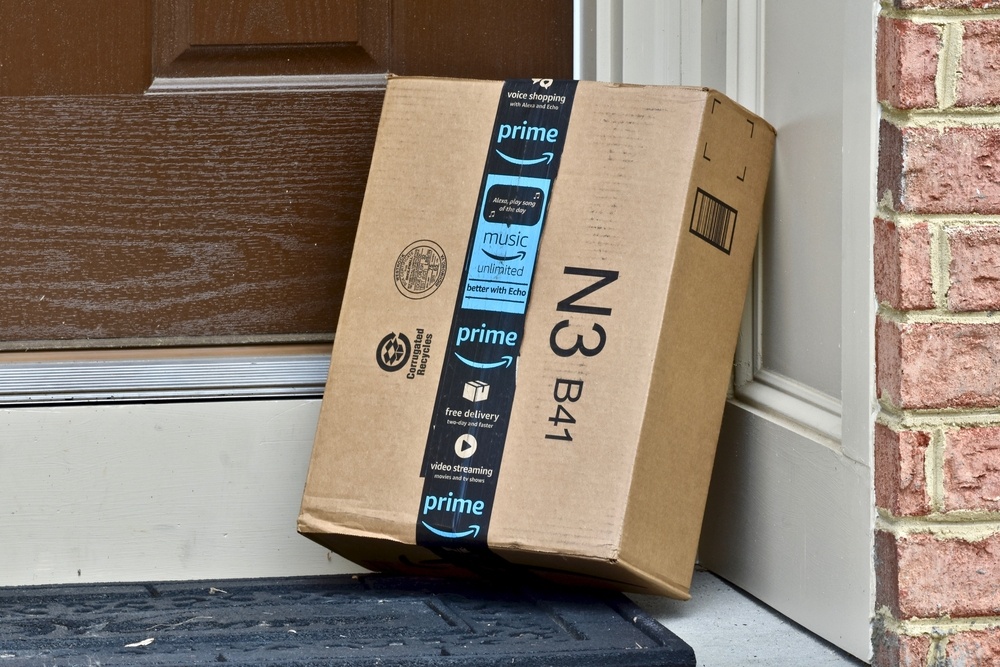The news of a terminated partnership between delivery startup Deliv and Walmart could potentially be the canary in the coalmine signaling an impending power shift away from Walmart and toward Amazon in the American retail market. To those in the know, a clandestine but very real war is currently underway between the two titans of American retail, with the potential to fundamentally reshape how Americans – and eventually the rest of the world – do their shopping.
After leaving a trail of disrupted retail business models and conquered markets in its wake, Amazon is currently locked in a battle for U.S. retail supremacy with Walmart, which is still the worlds largest retailer. Thus far, Walmart has managed to avoid the fate of retailers like Toys “R” Us and Sears by blurring the lines between its online and offline retail offering in response to Amazon’s $13.7 billion acquisition of Whole Foods in 2017. What significance does a pullout by Deliv have for Walmart, and what could this potentially mean for Amazon?
Last-Mile Grocery Delivery Is The Key
From a business point of view, Walmart and Amazon are not that different. They both have the same highly efficient supply chains and Just-in-Time inventory management systems. They both offer customers a dizzyingly wide variety of stock and brands to choose from at similar prices. The difference between both has always been that while Amazon places a famously obsessive emphasis on delivering products to customers’ homes the same day, Walmart has retained its reputation as a big-box supermarket where customers physically purchase their items and walk away with them instantly.
Amazon’s Whole Foods acquisition changed all that, however, with the company combining its ruthlessly efficient delivery infrastructure with the inventory of a respected premium supermarket brand. Unlike Walmart, Amazon is not dependent on a fleet of trucks with drivers working defined hours. In true internet startup style, the company has consistently demonstrated its fierce determination to get goods to customers within as little as two hours using any means possible, even mooting the idea of delivery drones.
To keep up with Amazon’s blatant play for its market share, Walmart signed the deal in 2017 with Deliv, a sort of Uber-but-for-deliveries startup that offered freelance drivers to make deliveries at short notice. This was supposed to be the deal that would catapult Walmart from threatened legacy retailer to 21st-century tech-driven retail platform.
Instead, according to Deliv sources quoted by Reuters, Deliv drivers soon found that Walmart organisational culture was simply not attuned to the quick response and quick turnaround required to play in that field. According to the sources, it was common for drivers to have to wait for up to 40 minutes to collect an order after arriving at the supermarket. Also, Walmart policy is to give priority to physical customers over those who placed internet orders, and this understandably caused problems.
Whole Foods in comparison continues to deliver on its same-day delivery promise, with the implicit point being that increased internet adoption for grocery shopping experiences will favour Amazon over Walmart. Walmart is apparently unable to meaningfully redefine itself as a serious alternative to Amazon
“Amazon Effect” Coming for Walmart?
While any rumours of Walmart’s death are clearly exaggerated at this point, it must be noted however that if this vulnerability is not addressed and consumer habits continue in the current direction and rate, it is not inconceivable that we could be witnessing the beginning of the end for America’s most famous retailer. The importance of significantly improving its online shopping offering will not be lost of Walmart after a series of studies have shown the relationship between ecommerce and the closing down of several retail stores.
Walmart has already gone through some similar partnerships in an attempt to keep pace with Whole Foods. These have included failed deals with ride hailing services, Uber and Lyft, partnerships with hundreds of local delivery businesses, and even an attempt at creating its own in-house micro delivery system.
Walmart’s same-day delivery war with Amazon may have finally hit a brick wall after prior failure of Uber and Lyft as delivery partners
Of course, for the moment, the retailer is keeping schtum about its problems with same-day delivery. Responding to media inquiries, Molly Blakeman, a spokeswoman for Walmart issued a tersely worded statement which said in part:
As with any pilot, the intent is to learn. And we ultimately came to the conclusion with Deliv that while their platform is a good delivery option, it was not the best fit for our program at this time.
Responding to insinuations that the partnership did not work out due to low demand in addition to Walmart’s slow order processing rate, Blakeman denied this out of hand, insisting that the termination was purely mutual, without offering any further explanation.
As mentioned, earlier, Walmart remains the global retail top dog, and it clearly would be foolish to write it off yet. If however, the company does not immediately recognise the need for change, it is entirely possible that we may someday speak of Walmart in the past tense, in a world dominated exclusively by Jeff Bezos, à la South Park.

